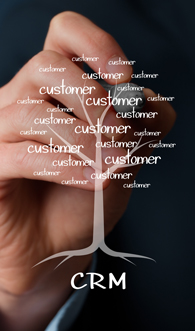There’s no time like the present to set new goals. Accompanying growth goals is the desire to increase efficiencies, and one prominent way to do that is by following proven practices from other industries and making the shift from paper and spreadsheets to a customer relationship management (CRM) system. This move to cloud-based digital data provides reps easy access to historical information, current project status, and contact details anytime, anywhere via their mobile devices.
Because independent manufacturers’ rep agencies typically don’t have an IT resource, implementing a software solution can seem overwhelming. Fortunately, there are now plug-and-play solutions for optimizing operations that can save significant cost of operations and spur an increase in revenue, not to mention improve employee morale.
Implementing a CRM solution doesn’t have to be difficult and it gives agencies the ability to streamline operations, track performance, stay on top of communications, and reduce operational costs. Unlike passive spreadsheets, a CRM tool proactively prompts follow-ups and allows tracking of commissions, order information, submittals, contract amendments, change orders, associated e-mails and attachments, as well as other daily requirements in a single application.
With easy access to a current list of daily tasks, reps are significantly more efficient, respond quicker, and are less likely to let anything slip through the cracks. There is a huge competitive advantage to having access to a customer’s history simply by pulling up an app on a smart device. You can view the information in real time and keep your project moving forward rather than waiting to get back to the office to look up needed data.
The Need for Data
In some cases, manufacturers are starting to require their direct and independent rep agencies to use a CRM so they can receive data further down the sales chain relating to material purchases required to fulfill orders. It has never been more important to track sales on “Made to Order” products. Gone are the days of warehousing materials and waiting for sales to deplete stock. Lean manufacturing (conserve resources and add value) is where materials are ordered to fulfill the backlog of products to be manufactured. Rep-specific CRM systems provide accurate data on sales and forecasts for the manufacturers to more accurately purchase only the material needed.
For owners and sales managers, reporting and analysis have never been as easy as it is with a CRM system. Automated reports are viewed via dashboards and can be pre-programmed to track win-loss ratios of manufacturers, products and customers, so agencies can easily see which products are selling and which customers are buying in real time.
Early adopters of CRM systems are realizing unexpected cost savings from not having to purchase paper, toner, ink, files, labels, staples, paperclips, and all the other sundries associated with paper filing systems. Some agencies are able to downsize their office or reduce the need for administrative staff.
Choosing a CRM application that is specifically customized for manufacturers’ reps simplifies the transition from paper and can provide a “download and use, no programing required” scenario that can lead to more projects won and a healthy increase in revenue.
MANA welcomes your comments on this article. Write to us at [email protected].



